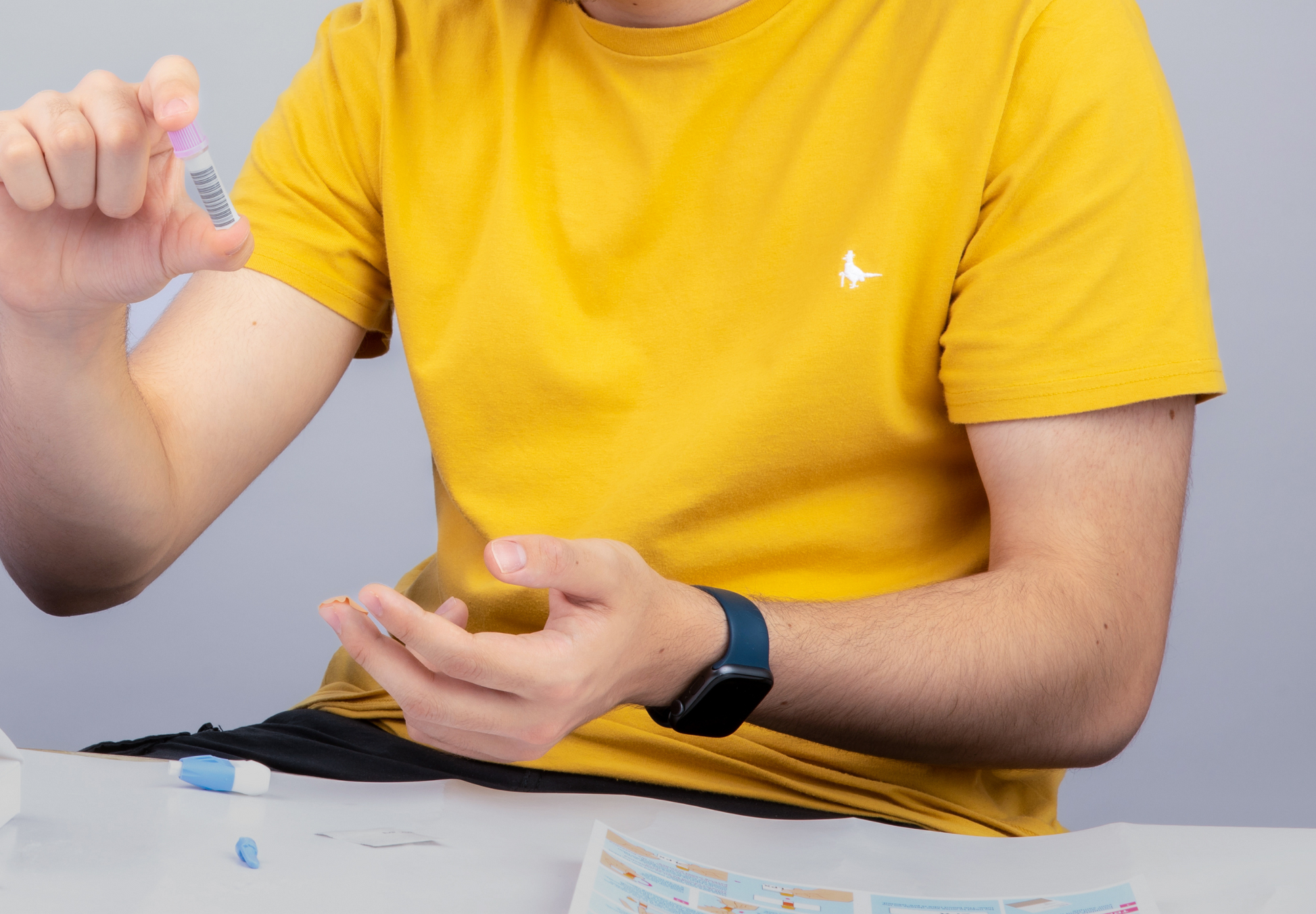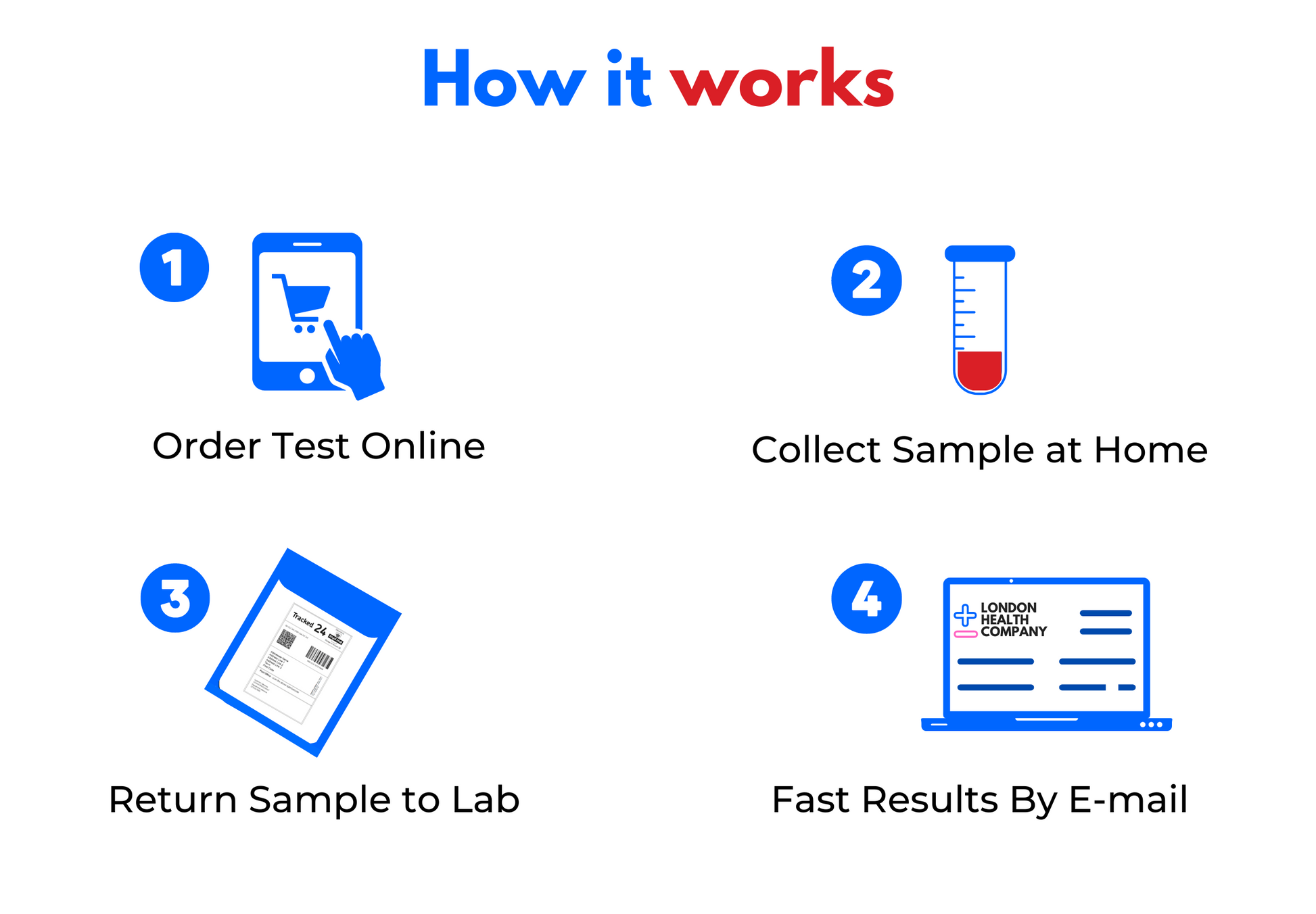Testosterone Blood Test. Lab Analysis, Available Across the UK
Testosterone Blood Test. Lab Analysis, Available Across the UK
Couldn't load pickup availability
Biomarkers/parameters tested using this testosterone kit:
The testosterone blood collection kit contains everything you need to collect blood at home and send it to our laboratory for analysis. Inside, you'll find lancets, instructions, lab request form, labels, tube, tube pouch, prepaid UN3373 envelope, tube holder, swabs, alcohol wipes, and plasters.
Medications that may raise testosterone levels include anticonvulsants, barbiturates, estrogens and oral contraceptives. Conversely, medications that may lower testosterone levels include alcohol, androgens, dexamethasone, diethylstilbestrol, digoxin, ketoconazole, phenothiazines, spironolactone and steroids.
What is the difference between Testosterone and Free Testosterone?
Share
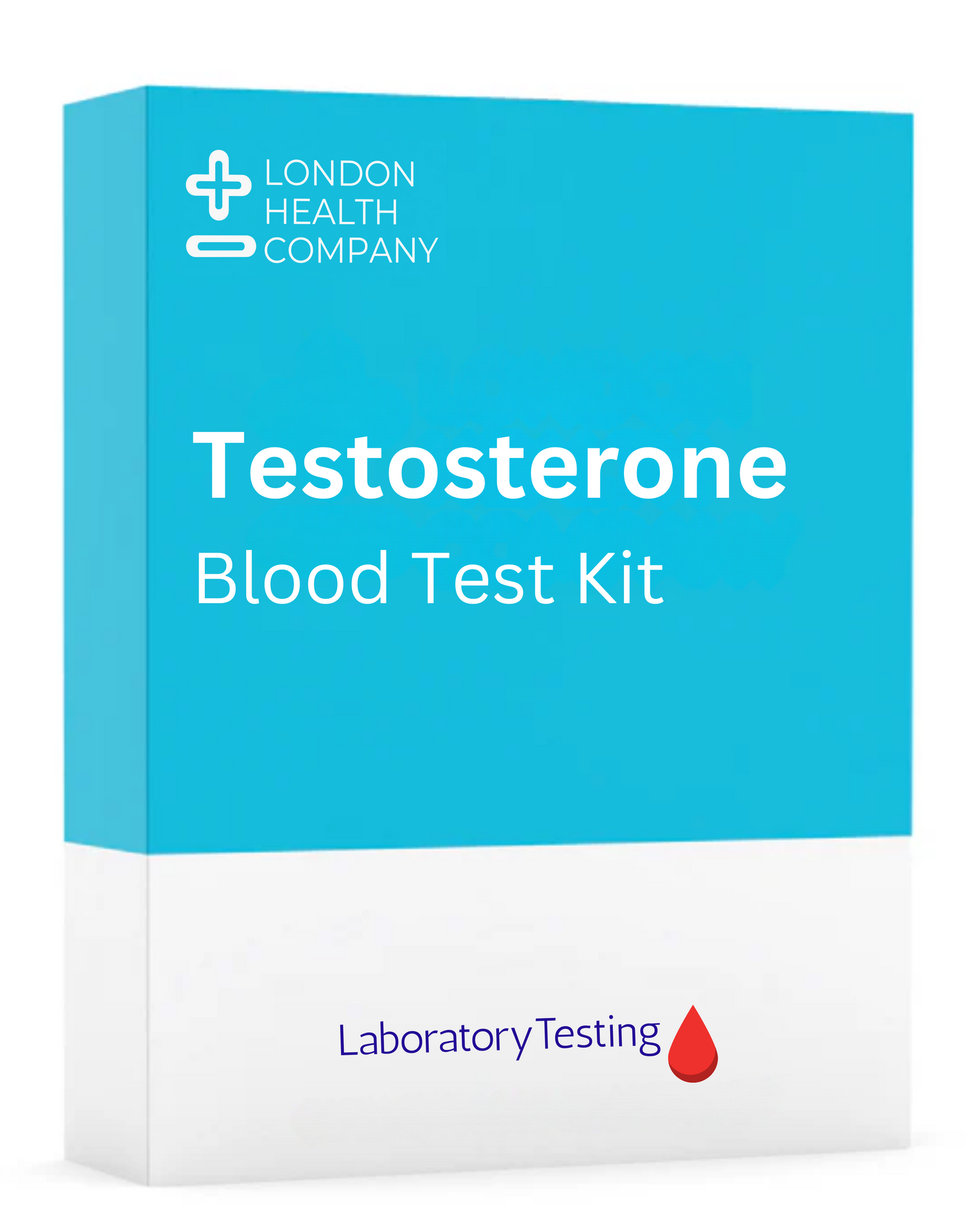
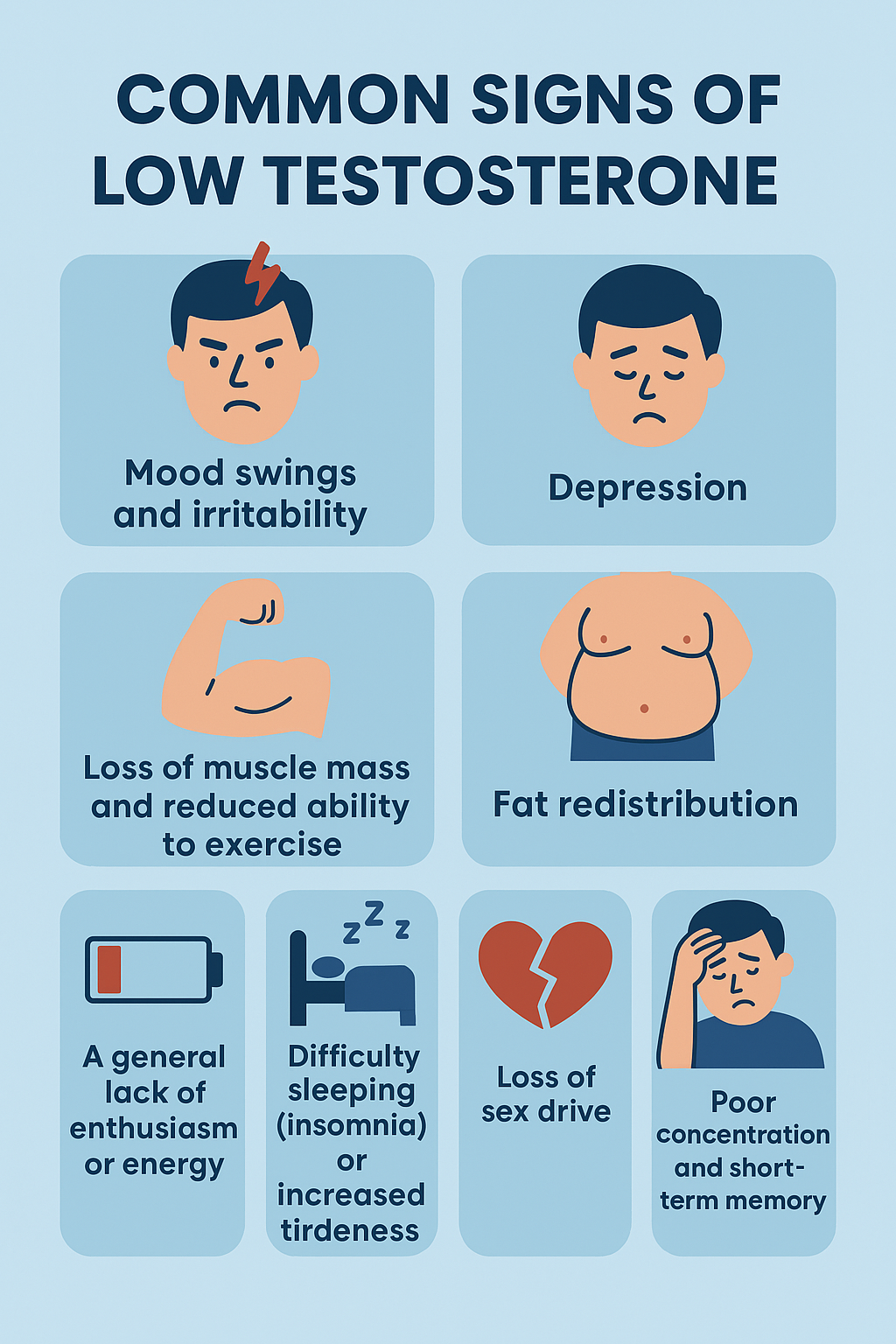
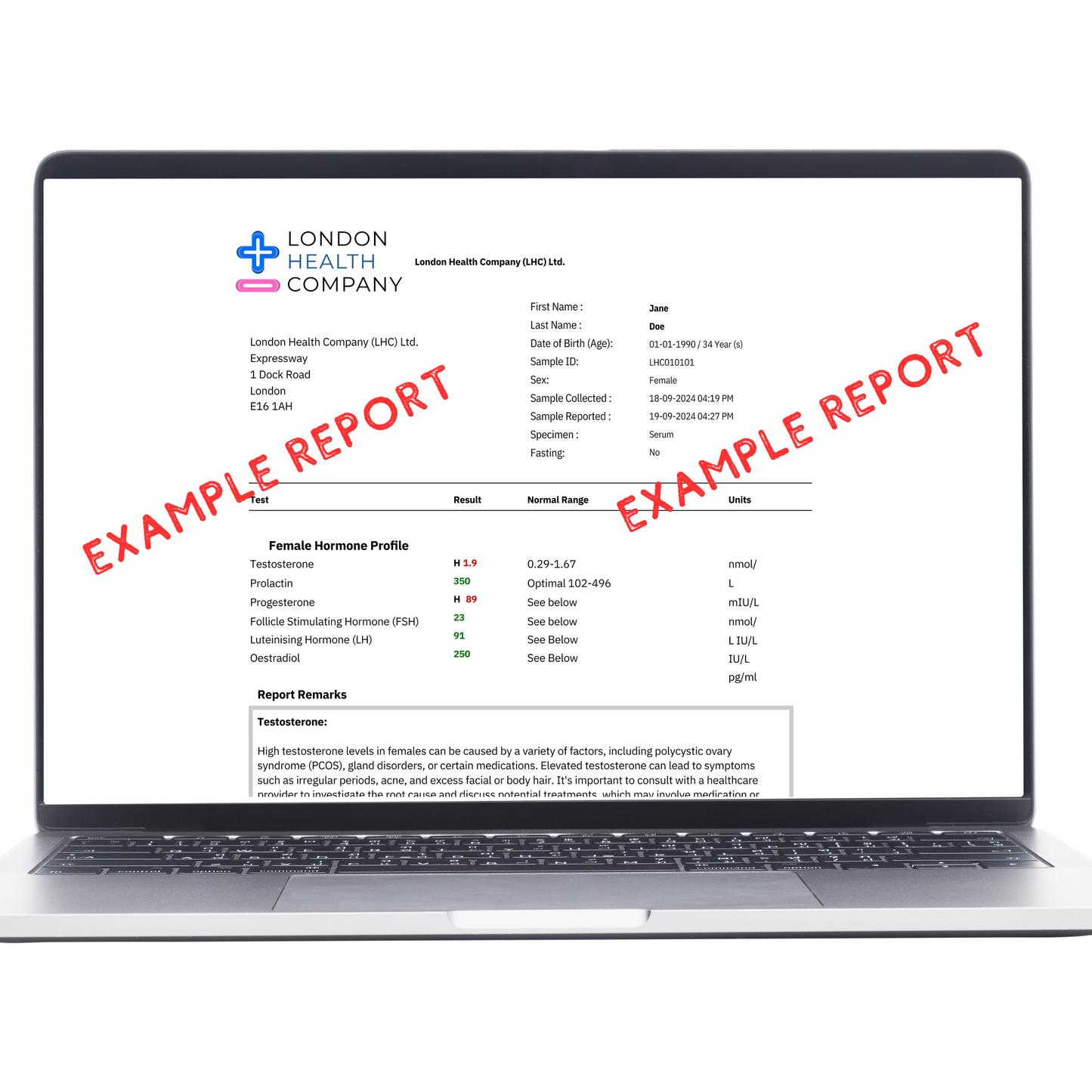
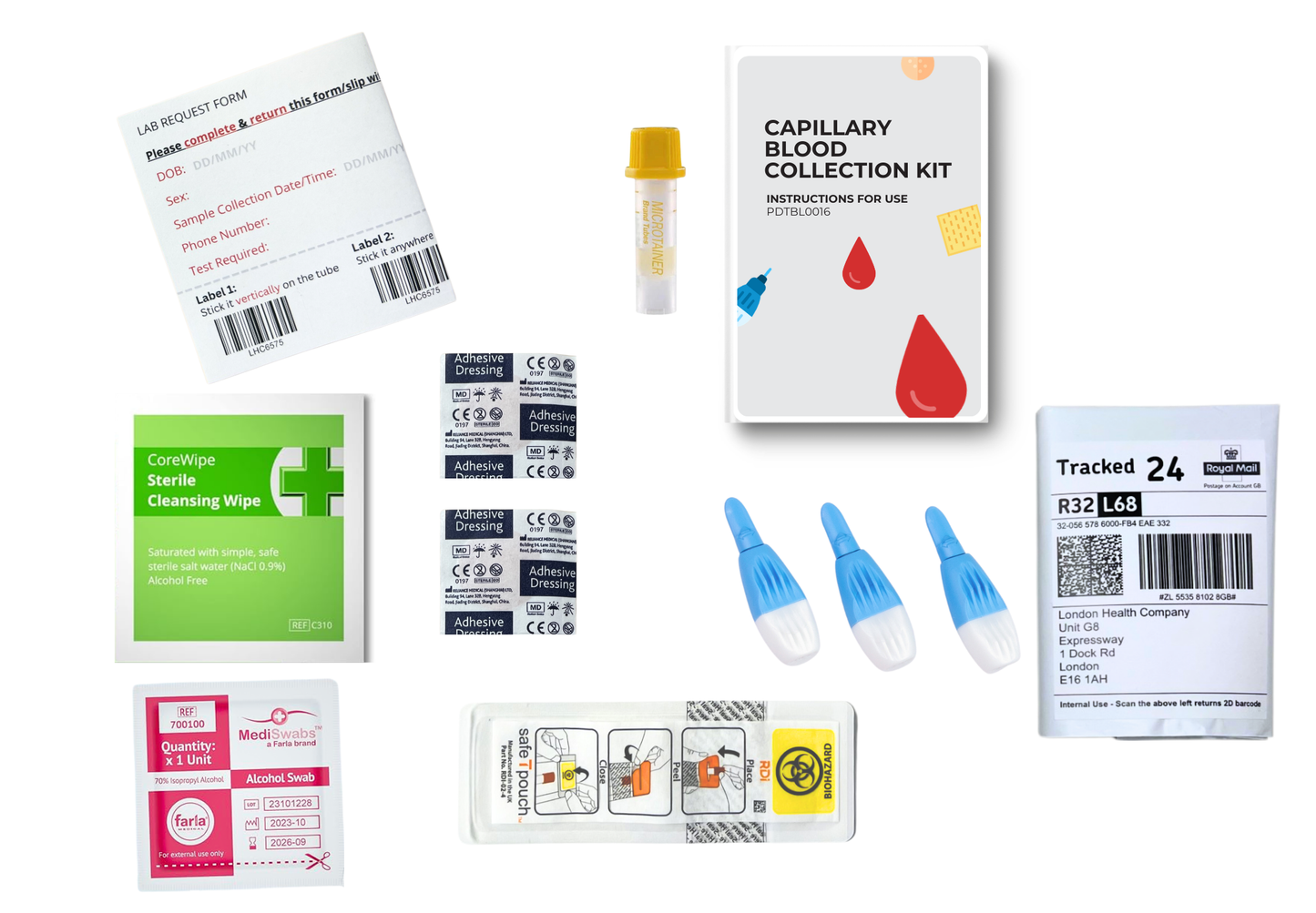
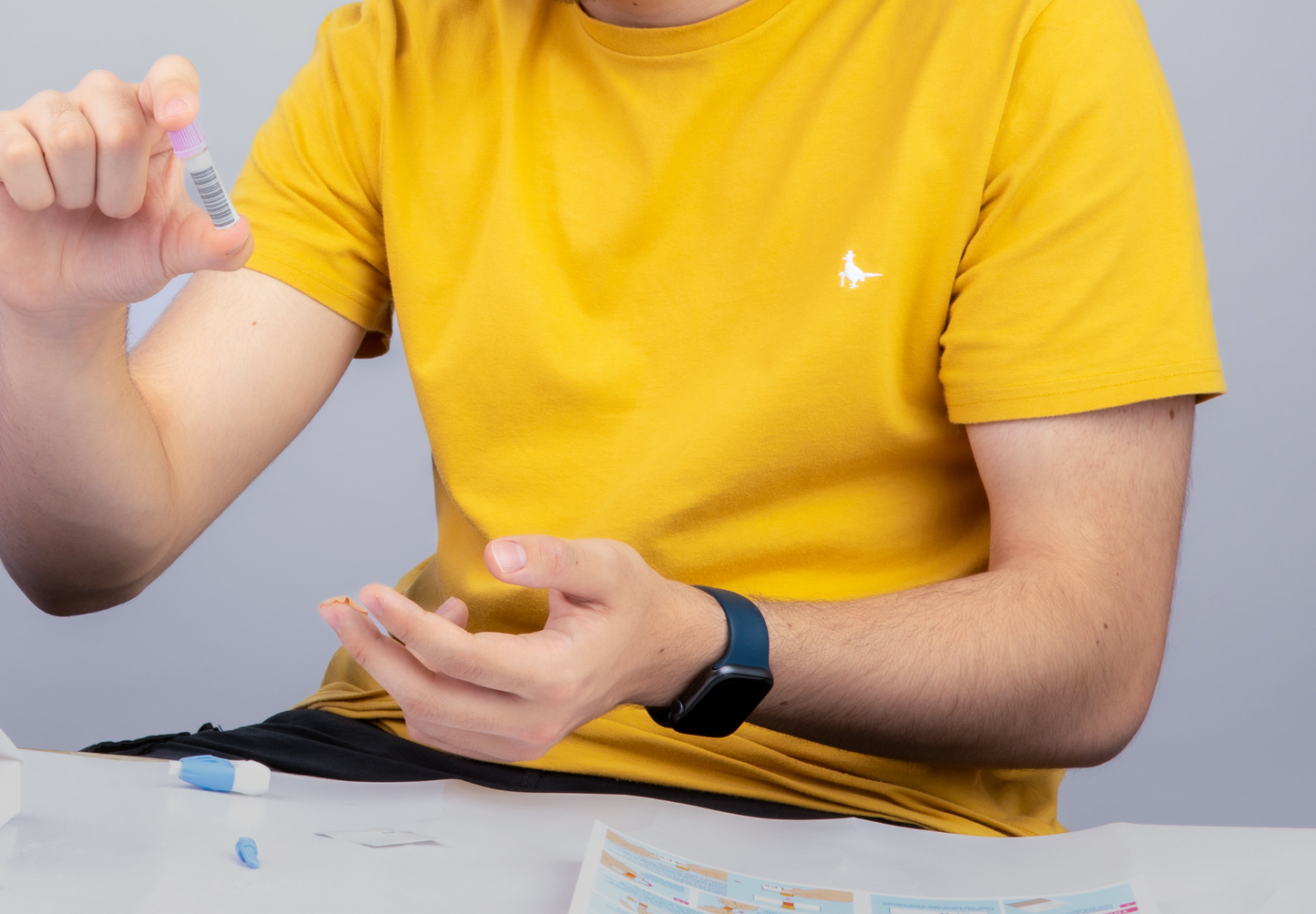
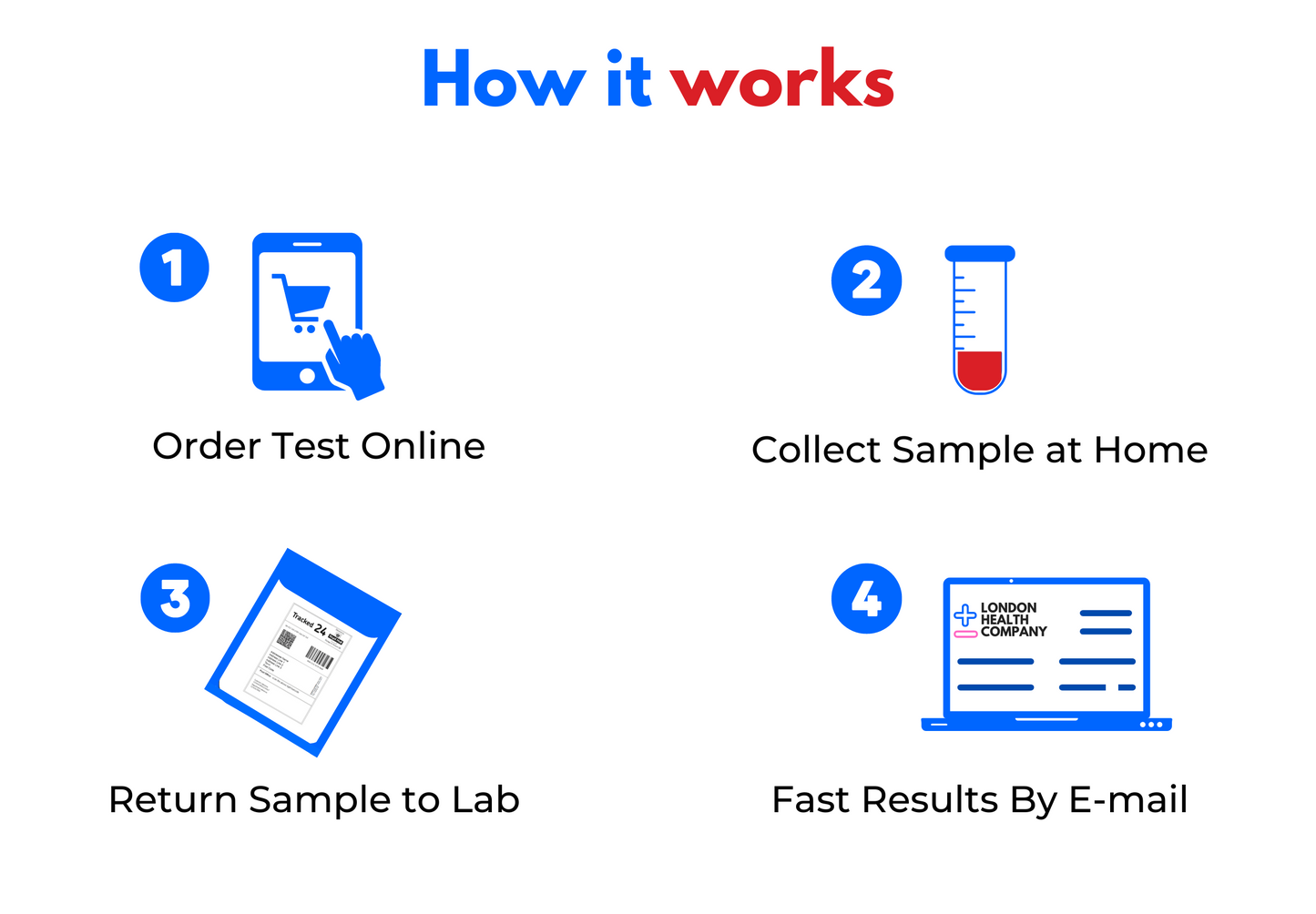
Testosterone
What is Testosterone?
Testosterone is a hormone that plays many physiological roles in your body influencing factors such as sex drive, muscle mass, fertility, sports performance and mood.
Testosterone Deficiency
In the UK, management of menopause is primarily handled by general practitioners (GPs). However, the same level of oversight is not commonly observed for Testosterone Deficiency Syndrome (TDS), also referred to as late-onset hypogonadism (LOH), androgen deficiency in the aging male (ADAM), or andropause. Testosterone levels can begin to decline in men as young as 40 years old, decreasing at a rate of approximately 1% per year. Nonetheless, not all men will experience low testosterone levels. While the precise prevalence of low testosterone in men remains uncertain, it is estimated to affect around 25% of the aging male population and is frequently associated with declining health and underlying medical conditions. To read more about testosterone deficiency syndrome and testosterone replacement therapy, please refer to a summary of an article by Cervoni.
Some of the key factors that influence testosterone levels in men include:
1. Age: Testosterone levels tend to decrease with age, typically starting to decline around the age of 30.
2. Lifestyle and Diet: Poor dietary habits, lack of exercise, and obesity can contribute to lower testosterone levels. A healthy lifestyle with regular physical activity and a balanced diet can positively impact testosterone production.
3. Sleep: Inadequate or poor-quality sleep can lead to lower testosterone levels. Getting sufficient and quality sleep is essential for hormone regulation.
4. Stress: Chronic stress can elevate cortisol levels, which may interfere with testosterone production. Finding effective stress management techniques is important for overall hormonal balance.
5. Body Composition: Higher body fat levels, especially abdominal fat, have been associated with lower testosterone levels. Maintaining a healthy body composition through exercise and proper nutrition can help optimize testosterone levels.
6. Chronic Illness and Medications:** Certain medical conditions, such as diabetes and obesity, and medications like corticosteroids can negatively impact testosterone production.
7. Testicular Health: Conditions affecting the testicles, such as injury, infection, or certain diseases, can lead to lower testosterone levels.
8. Genetics: Genetic factors can influence testosterone levels. Some individuals may be genetically predisposed to higher or lower testosterone production.
9. *Alcohol and Substance Abuse: Excessive alcohol consumption and substance abuse can negatively affect testosterone levels.
10. Environmental Factors: Exposure to endocrine-disrupting chemicals in the environment, such as certain pesticides and plastics, may have an impact on hormonal balance, including testosterone levels.
It is very important to note that individual responses to these factors can vary, and addressing lifestyle factors through healthy habits is generally beneficial for overall well-being and hormonal health. If someone is concerned about their testosterone levels, consulting with a healthcare professional for personalized advice and testing is recommended.
Testosterone Replacement Therapy (TRT)
Testosterone replacement Therapy
Testosterone Replacement Therapy (TRT) is a medical intervention that involves the administration of synthetic testosterone to individuals with clinically diagnosed low testosterone levels. The decision to initiate TRT is based on several factors, including a comprehensive assessment of an individual's symptoms, health history, and laboratory results.
In general, the eligibility for TRT is determined by the presence of symptomatic hypogonadism (clinically low testosterone levels) along with signs and symptoms that can be attributed to low testosterone. The diagnosis is not solely based on testosterone levels but considers the overall clinical picture.
Here are some general guidelines for testosterone levels that may be considered low and could potentially warrant TRT:
1. **Total Testosterone Levels:** A total testosterone level below the reference range (e.g., below the lower limit of around 10 nmol/L) may be an indication for further evaluation.
2. **Symptoms of Low Testosterone:** Symptoms of low testosterone, such as fatigue, reduced libido, erectile dysfunction, mood changes, and decreased muscle mass, are important factors in determining eligibility for TRT.
It's crucial to note that the decision to start TRT should be made by a healthcare professional, typically an endocrinologist or urologist, after a thorough evaluation. They will consider not only testosterone levels but also the individual's overall health, medical history, and the potential risks and benefits of TRT.
Before considering TRT, healthcare providers may also rule out other potential causes of symptoms and low testosterone, such as chronic illnesses, medications, or lifestyle factors.
It's important for individuals with concerns about testosterone levels or symptoms suggestive of low testosterone to seek medical advice. Self-diagnosis and self-prescription of testosterone are not recommended due to potential risks and complications associated with hormone therapy.
How it works
-
Order kit
Order the kit that you want based on what you want to be tested. We ship all orders placed before 1pm same day.
-
Collect your sample at home
Collect your own sample using a simple finger prick. Everything you need will be included in the kit.
-
Send your sample to the lab
Simply drop in any red letter box. No need to arrange for courier pickup or pay for returns. Remember to register online using the unique sample ID to get your results.
-
Receive results
We will analyse your sample and send you results by email within 24-48 hours. A copy can be sent to your GP/surgery if you wish.
Health & Medical Information Related to our Tests
View all-
The Build vs. Break Index: Understanding the T:...
The T:C ratio is a biological marker of the balance between building up (Anabolic/Testosterone) and breaking down (Catabolic/Cortisol). It serves as a physiological gauge for how well the body is...
The Build vs. Break Index: Understanding the T:...
The T:C ratio is a biological marker of the balance between building up (Anabolic/Testosterone) and breaking down (Catabolic/Cortisol). It serves as a physiological gauge for how well the body is...
-
Understanding Prostatitis: What Recent Research...
Prostatitis is inflammation or infection of the prostate, which can be acute, chronic, or chronic pelvic pain syndrome (CP/CPPS). Symptoms include pelvic pain, urinary changes, and discomfort during urination. Treatment...
Understanding Prostatitis: What Recent Research...
Prostatitis is inflammation or infection of the prostate, which can be acute, chronic, or chronic pelvic pain syndrome (CP/CPPS). Symptoms include pelvic pain, urinary changes, and discomfort during urination. Treatment...
-
Iron Deficiency and Hair Loss in Women: What Do...
Hair loss is a common concern among women, and iron deficiency has long been suspected as a contributing factor. A well-designed systematic review and meta-analysis published in Skin Appendage Disorders examined...
Iron Deficiency and Hair Loss in Women: What Do...
Hair loss is a common concern among women, and iron deficiency has long been suspected as a contributing factor. A well-designed systematic review and meta-analysis published in Skin Appendage Disorders examined...
-

Blood vs. Urine Pregnancy Tests: Why Your Choic...
Discover why clinical blood pregnancy tests offer superior accuracy and sensitivity for early pregnancy dating compared to standard at-home urine tests.
Blood vs. Urine Pregnancy Tests: Why Your Choic...
Discover why clinical blood pregnancy tests offer superior accuracy and sensitivity for early pregnancy dating compared to standard at-home urine tests.





